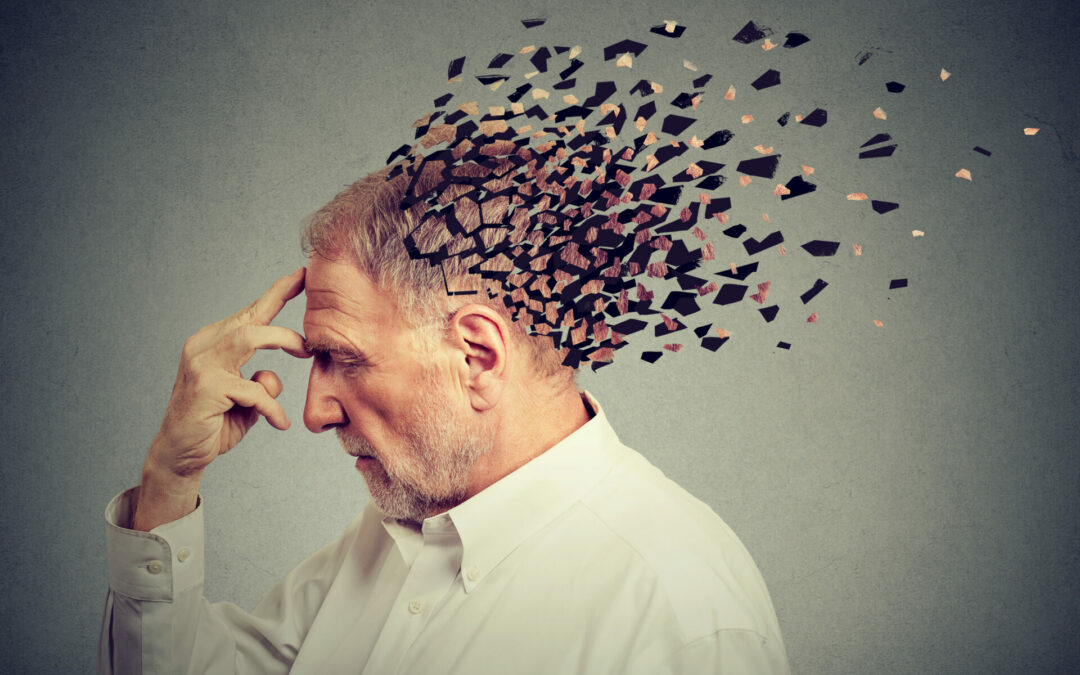Contents
Top Signs Of Dementia Need Attention
The early or top signs of dementia are what caregivers and older adults need to be mindful of. It’s because the condition is something that causes difficulties and gets worse. Acting on confirmed symptoms associated with the syndrome may help slow its progression. If not, at least taking action can provide comfort and improve the quality of life of the elderly. Thus detecting these problems matters a lot.
Besides, there are conditions like dementia that are reversible. Memory problems and confusion doesn’t always equate to the syndrome. So it’s important to identify the first signs of dementia or treat symptoms as something else. That is to treat what is reversible and provide support for what needs lifetime help.

What Are The Top Signs Of Dementia
The first signs of dementia may not be clear sometimes. Yet they often show themselves in sequence or at once when identified. Often, symptoms surface and remain consistent after appearing. They are usually unexpected, distinctive, and cause serious issues with daily activities. Dealing with a normal aging brain is different from this syndrome. Thus it is worthy of attention and action.

What Are The Warning Signs Of Dementia
- Troublesome loss of memory.
- Inability to focus on directions.
- Troubles with routine or daily tasks.
- Disorientation with time and place.
- Vision and spatial perception issues.
- Finds it challenging to keep up on conversations.
- Loses track of things or belongings and holds others accountable.
- Persistence of poor judgment.
- General social withdrawal.
- Alteration in mood and personality.
Recognizing the first signs of dementia usually means seeing the predominant symptoms below. Having them once or twice isn’t conclusive. Yet experiencing them many times may prove the existence of the condition. So keep watch of the elderly if you suspect them to have the syndrome.
How Normal Aging Is Different Than The Top Signs of Dementia
- Forgets names and meetings with people on occasions.
- Committing mistakes with things that relate to numbers.
- Has troubles yet may ask for help in doing new tasks and using the latest devices.
- Gets momentary confusion about weekdays and also events.
- Problems with eyesight and perception due to physiologic issues.
- Forgets parts of conversations but follows along.
- Recalls things or retraces steps to recover lost items.
- Makes poor decisions from time to time.
- Isolates due to tiredness from socialization and activities.
- Feels irritated when disturbed while doing things.
People in general associate aging with cognitive decline. So it’s also normal to expect mental processing, memory, and even behavioral changes. Elders may even speak, perceive, and perform tasks in different ways. But these are mild and not disruptive as when dementia happens.
Understanding The Signs Of Dementia In The Elderly
What makes the top signs of dementia different is that they prove an irreversible state. They keep happening and the occurrences become worse. But it’s not only that the manifestations go on that’s the issue. What occurs in the body while they persist makes the syndrome dementia.

More often than not, people classify dementia into different categories. After all, it’s a broad term that describes symptoms. The classifications divide the manifestations to describe their nature. Below is a list of conditions that people consider true dementia based on their symptoms.
Types Of Dementia and Diseases Linked To It
Alzheimer’s Disease.
This ailment makes the brain and its cells shrink. That is while the signs of dementia in the elderly manifest. With this, cognitive decline, behavioral changes, and social withdrawal happen.
Vascular Dementia.
It’s the second most common form of the syndrome. Here, the brain tissues get damaged due to poor blood flow. The cause is often partial or full blockage of the blood vessels due to clot formations. This also results in decreased oxygenation in the brain.
Lewy Body Dementia.
Lewy bodies or protein deposits reach areas of the brain and cause a variety of things. Mood, behavior, and movement are some that get affected. It progresses in three stages. In the early stages, among the symptoms is having delusions. It includes sleep and movement disorders. In the middle stage, motor and speech impairment happens. This further moves to muscle stiffness and susceptibility to infection.
Frontotemporal Dementia.
The clear cause of this remains unknown. It involves losing the brain nerve cells of the frontal and temporal lobes. But among the things that this condition causes are a lack of self-awareness and empathy. Also, manifestations are a lack of interest and impaired judgment. These things often result in inappropriate social behaviors.
Mixed Dementia.
This often has the combination of the top signs of dementia. It means shrinkage of the brain and blood flow problems there. That is while manifesting various symptoms associated with dementia.
Other Conditions That Link To Dementia
- Huntington’s Disease
- Traumatic Brain Injury
- Creutzfeldt-Jakob Disease
- Parkinson’s Disease
All these involve changes to the brain due to genetics or environmental factors. These things often cause profound loss of memory and personality alterations. They make it hard to manage daily activities without help and maintain relationships.
Even if they are incurable, there are measures to help people handle them. With proper diagnosis and help from caregivers, quality life is still achievable.
Dealing With The Top Signs Of Dementia
Recognizing the first signs of dementia may be important but acting on it is imperative too. After all, it is in helping the elders manage wherein they could age better. This condition has no cure but measures to deal with it are available. Here are the most common things that people do to help seniors live with dementia.

Techniques To Address The Signs Of Dementia In The Elderly
- Pharmacological Approach
- Psychological Treatment
- Help In Daily Living
The Use Of Medicine
In some cases, the use of medications can help. After all, these things influence the chemicals within our bodies. So it makes sense to take them for supportive therapy. Yet it’s only that we need to find out what are the warning signs of dementia that call for their usage.
Some of the ones recommended for dementia are as follows:
- Cholinesterase Inhibitors. These increase acetylcholine and improve nerve communications in the body. Thus these help with dementia symptoms. Examples are Rivastigmine, Galantamine, and Donepezil.
- NMDA Receptor Antagonists. This stops glutamate from docking which causes excitatory neurotransmission. So it prevents Alzheimer’s Disease symptoms such as loss of memory and damage to the brain. Examples are amantadine, dextromethorphan, ketamine, and memantine.
Psychiatric and Behavioral Therapy
Visiting psychologists and psychiatrists can help. They can help with the top signs of dementia. To be specific, though, it would be wise to consult with experts who specialize in geriatric cases. Some even suggest seeking the aid of a geriatrician. But going for either or both may help a lot too. They may help with cognitive stimulation therapy and the like.
Psychologists can help their geriatric patients and their families cope with long-term problems. They assess and tell how a person thinks, feels, and behaves. These experts often provide behavioral therapy and teach people how to adjust better. Psychiatrists target neurologic conditions but can handle psychological problems too. They are the ones who can prescribe medications such as antipsychotic drugs. Thus either may help patients suffering from dementia and even their loved ones.
Helping With ADLs
ADLs or activities of daily living are important for people with dementia. With the way their brains work, they have problems functioning. So it’s understandable why they would need aid. With the right help, they may be able to do tasks and even enjoy life.
In helping them, caregivers ought to concentrate not only on getting things done. They need to see to it that affected seniors experience comfort along the way. That is to say, geriatric patients need calm and systematic support when performing. They need to receive step-by-step instructions with respect.
In Conclusion
Being familiar with the top signs of dementia can help a lot. It may aid in helping older adults and caregivers live life better. Though it is irreversible, there are ways to manage it. There are supportive measures to deal with the condition. Thus it makes sense to research it.
Not all who have issues with their memory and in interacting with others have the syndrome. Even some old-timers who are often confused don’t have dementia. So it is important to find out if someone has it or otherwise. Also, discover what kind of dementia an old person has. That is so the right people could take appropriate measures to help.
Read More:
Personalized Treatment For Cognitive Impairment In Dementia
Different Ways For Seniors To Keep The Brain Healthy
How To Care For Elderly parents With Dementia






